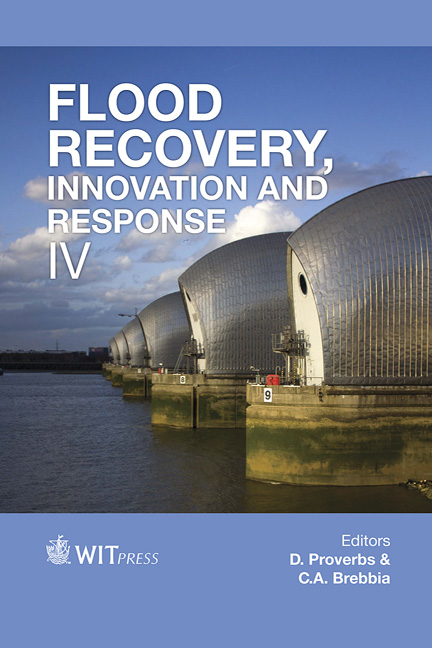Improving The Uptake Of Flood Risk Adaptation Measures For Domestic Properties In An Insurance Regime Under Transition
Price
Free (open access)
Transaction
Volume
184
Pages
11
Page Range
139 - 149
Published
2014
Size
293 kb
Paper DOI
10.2495/FRIAR140121
Copyright
WIT Press
Author(s)
D. Cameron & D. Proverbs
Abstract
In June 2013 the UK Government and the ABI announced plans for a new system of insurance called ‘Flood Re’. This announcement was the first step towards setting up a ‘not for profit’ scheme which aims to ensure the continuation of affordable insurance for households with the highest flood risk. This research investigates whether the widespread provision of flood insurance is a factor in the low uptake of property level resilience measures. In the context of transition it further examines whether there is growing impetus for the concept of incorporating such measures. The literature establishes that the historic insurance regime provided few incentives for installation of flood resilience measures and that there are a number of factors beyond the provision of insurance which influence the low uptake of measures. The impact of potential changes in the insurance regime is explored in more detail through a number of semi-structured interviews with key flood risk management professionals and academics. The research finds that links between the provision of insurance and the installation of resilience measures are significant. Flood resilience measures will continue to be part of the wider strategy of community engagement with an integrated approach to flood risk management. The newly proposed ‘Flood Re’ is intended to be a transitory measure that will allow householders to adapt and take the necessary measures to protect themselves. However, in the long term, the anticipated move towards risk based pricing in whatever form may provide better incentives to households to adapt and this could be reinforced by other measures to support households in adaptation.
Keywords
adaptation, flood risk management, insurance, resilience.





